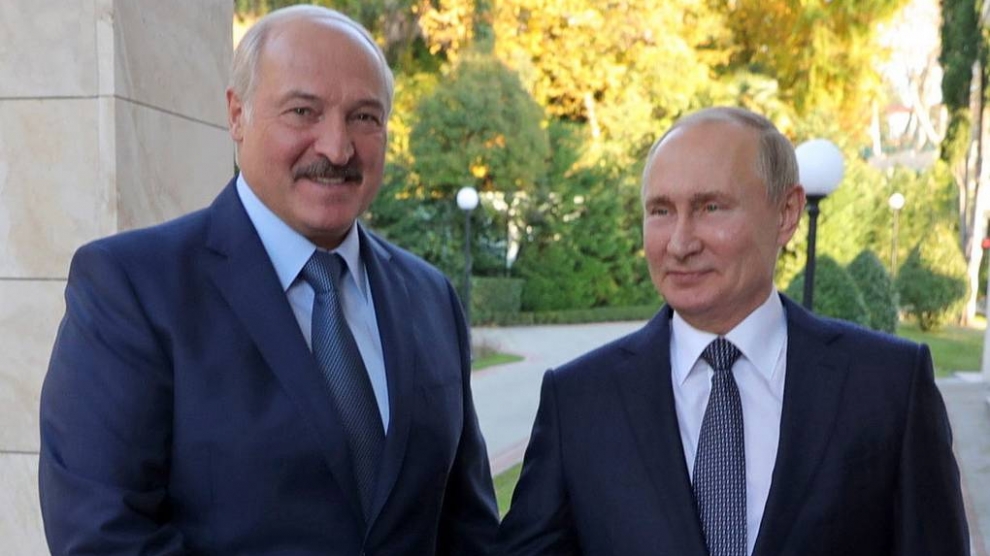Belarusian president Aleksander Lukashenko and his Russian counterpart Vladimir Putin failed to agree on closer integration between the two countries as Belarus and Russia have been eyeing deepening ties.
A much anticipated meeting between Mr Lukashenko and Mr Putin lasted for five hours in Russia’s Sochi resort, however, it ended without a concrete agreement. This is despite earlier expectations to make a deal by December 7, the 20th anniversary of the 1999 Union Treaty that envisaged a joint state between Russia and Belarus. The two presidents agreed to continue the talks on December 20 in Saint Petersburg.
Discussing energy cooperation ahead of the talks, Belarusian president pointed out that equal conditions were a prerequisite of enhancing integration. “We are not asking, as some say, for cheap gas and cheap oil. We are ready to buy gas for 200 US dollars, and we can pay more than 63 USD per barrel of oil. The key is to have equal conditions. If our companies pay 200 USD, it means the competing companies should also pay this price,” he told reporters.
Speaking after the meeting of the two presidents, Russian economic minister Maxim Oreshkin said that “a lot of progress has been made, even on oil and gas” and “positions have come significantly closer.”
The presidential meeting took place as hundreds of Belarusians marched through Minsk to protest what they called “deeper integration” with Russia, a call to defend their country’s independence and sovereignty.
“We have never wanted and are not going to become part of any other country, even brotherly Russia,” Mr Lukashenko said on December 5, responding to the Belarusian ambassador to Russia, Vladimir Syamashka, who previously claimed that the two leaders had agreed on setting up a joint government and parliament.
Belarus and Russia have been in talks for months discussing the possibilities of setting up a union state in line with the Union Treaty. Observers point out that the plan was suggested to find a legal way to keep the Russian president, Vladimir Putin, in power after his current term in office ends in 2024.
“The historic decision to sign this crucial treaty reflected our countries’ commitment to enhancing Russia-Belarus relations based on centuries-old traditions of brotherly friendship and cultural and spiritual closeness,” Mr Putin said in a statement, marking the 20th anniversary of the treaty.
Documents leaked from the Kremlin in September suggest that the plans outlined by the two governments would mean an “economic confederacy” between Russia and Belarus.
—
Photo: Kremlin






Add Comment